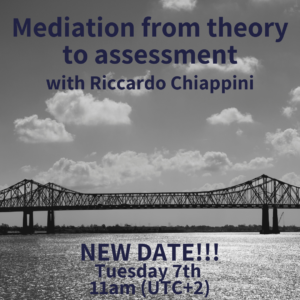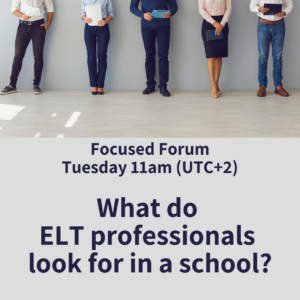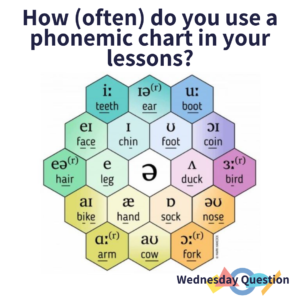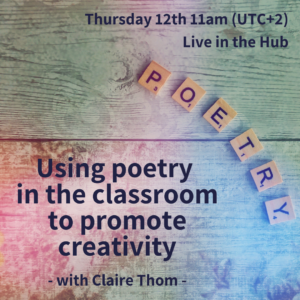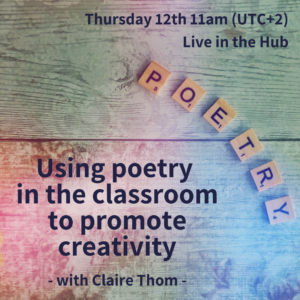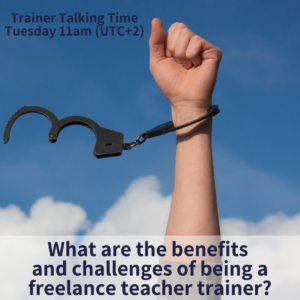


Happy Friday and happy September! July and August seem to have flown by in the Hub – though August was definitely quieter so our last event of the month, Tuesday’s Trainer Talking Time, has been rescheduled for next month when everyone’s more in the mood to talk TEFL.
Talk around DEI has continued in the Hub, with a wonderful video to get us thinking about making our classes more inclusive; we also had a video on an eco-friendly oceans project. The Wednesday Question on exit tickets sparked some conversation and there were also posts on mindfulness and networking.
Finally, on Thursday we were back with our regular coffee breaks and with conversations on Aptis, accentism and authenticity.



